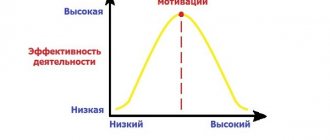Despite the fact that the official WHO register does not yet have a disease that would reflect dependence on social networks, and their developers unanimously deny the very existence of this problem, more and more people in the world are plunging into the abyss of virtual communication, which, in the worst case scenario, may become the only form of connection with the surrounding reality.
It is not surprising that this state of affairs raises serious concerns among psychiatrists, who compare the mechanism of formation of addiction to the Internet and social networks with the development of drug addiction or alcoholism in a person.
The principle is really similar, only in this case people begin to sound the alarm much later, because the harm from excess virtual communication is not so obvious. Let's try to figure out exactly what signs can be used to recognize addiction to social networks in adolescents and young people, and whether there are effective ways to combat it.
Why does social media addiction happen?
Social page networks are a small personal stage for each person. We create “our own world” on the page, which we share with others. Your illusory world. On the stage page we appear cheerful, posting our best photos. The statements of thinkers create the appearance of our wisdom and erudition...
A considerable amount of time spent on the Internet has added to the appearance of rating buttons - like/like. It takes a long time to leave a comment on a photo, and not everyone wants to pamper their friends with their attention. But you can put a like very quickly and you don’t have to come up with something, or even argue over the spelling, which, although “good, is somehow lame” (Winnie the Pooh).
As a result, the following happens. We upload our photos, and there is a repost of someone’s post on the wall/chronicle/feed. And then we begin to wait, greedily wait, for when what appeared on our social media page. networks will “like”.
Fortunately, not everyone gets sick from this; for some, it is completely “parallel” to what is happening in the parallel Internet space with their page on social media. networks. The bad news is that there aren't many such people.
The image created by a page on a social network sometimes scares away friends. After all, we can appear arrogant, too happy, or, conversely, sad in personal photos. What happens during a personal meeting? In just 3 seconds, the image that was so carefully painted on VKontakte dissipates.
Social addiction networks are reinforced by our laziness and fear. It’s so easy, unkempt and unwashed, to go online and write something to a friend from the page where your best photo shines. It's much easier than calling and making an appointment. After all, you need to prepare for it, put yourself in order, go somewhere. And then once you are in contact... Here it is easy to engage in soul-destroying observation, developing curiosity. And there’s nothing to say about discussing other people’s pages, or rather, there is something, but we won’t: everything is clear as it is.
Growth trend
The global network was created so that people could quickly get the information they need. On the Internet you can find any film or book, rare publications that are difficult to find in the public domain, find out the latest news and find work in any city in the world. And also, the creators of social networks pursued good goals - establishing lost connections with family, friends, classmates, and the ability to quickly contact them. It was predicted that a person using the Internet would be able to quickly find the necessary information, significantly saving time. According to scientists, with the help of the Internet, humanity can reach a new level of knowledge.
- Sweden – 64%.
- Denmark – 54%.
- Norway, Switzerland, South Korea – 47%.
- Australia – 44%.
- Israel – 38%, France – 30%.
- UK, Italy – 25%.
- Spain – 20%.
- Argentina, Brazil, Russia – 9%.
- Mexico, South Africa – 6%.
- India – 1%.
Social surveys have also been conducted that show what people can give up for the opportunity to visit social networks. About 70% of men and 40% of women are ready to give up hot water in favor of the Internet. 45% of men and more than 50% of women are ready to limit themselves in food. 20% of men and 25% of girls are ready to give up sex life completely for 3 weeks. From 80 to 90% of people prefer the Internet to TV and radio. These statistics are terrifying.
Orthodox communities on social networks
How good it is that after so many years of persecution of the Church, the treasures of patristic sayings have become available. Modern technologies make it possible to illustrate them, design them very beautifully and publish them on social media. networks. The emergence of Orthodox communities on social networks has made it possible to share this with more brothers and sisters. Currently, we have an abundance of similar Orthodox groups, posts (entries) in which one another is more interesting and attractive. Outwardly, all this may seem wonderful. But let us remember the words of Isaac the Syrian: “Without measure, even what is considered beautiful turns into harm.”
If we tempt our brothers and sisters in Christ by developing an Internet addiction, are we doing any good?
Undoubtedly, whether to sit in front of the monitor or not, to like a post or not depends on the “liker” himself. But wasn’t it about us (those who post numerous posts) that the Savior said, “ It is impossible ?
During Lent in 2014, one very respected Orthodox community on social media did something very wise. Administrators posted posts only on holidays; on other days the group was not updated. I think this is an example for everyone.
Instead of output
We forget very quickly. Our body gets so used to feeling tired that it forgets how it lived before. Every year we become more and more distracted and forget more and more that we used to be able to work on one task for hours without any problems. It seems to us that constant switching of attention is the norm. But is it? What's the point of waking up early if you spend an hour scrolling through Instagram? Is this really the life of a dream?..
Better read the second part of this topic - about my slowdown and unbridled relaxation in a hotel near Warsaw











